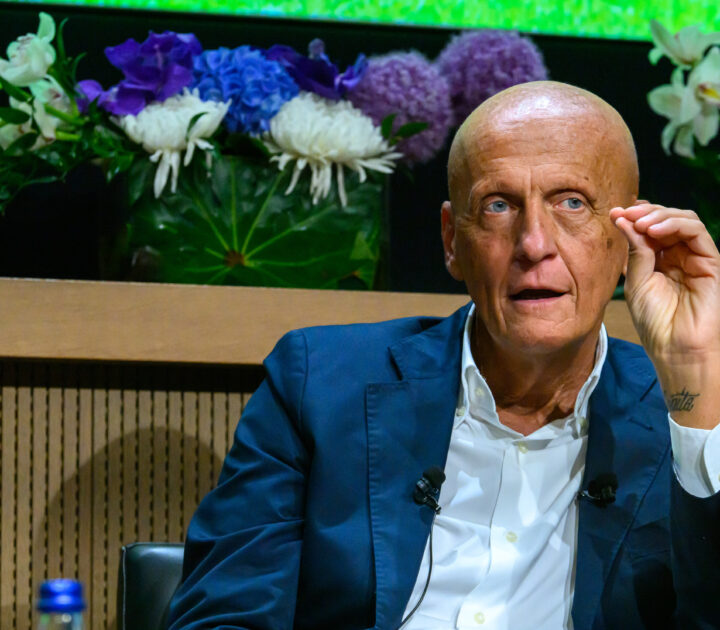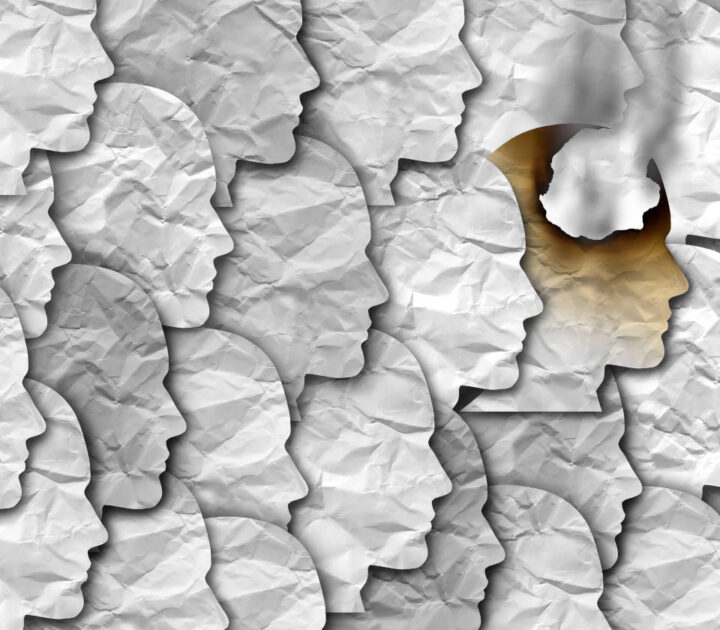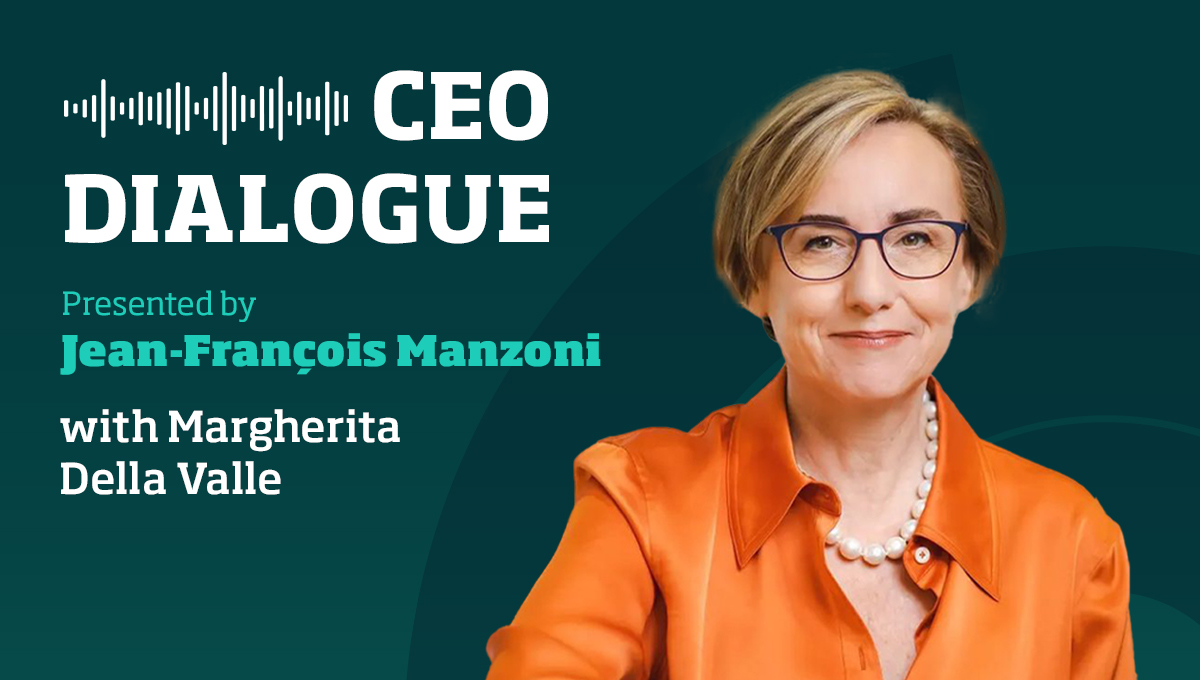3 leadership mindsets we are seeing emerge today

In their live webinar on Friday 3rd July at 11am CEST, the IMD duo identified some characteristics of today’s leader.
“We are seeing a shift from leaders having been the major actors to them being much more the people who set the stage, orchestrating the performance of others and giving them the visibility to shine,” said Professor Toegel, IMD Professor of Organisational Behaviour and Leadership.
In the webinar, she was prompted by Professor Pfluger, Senior Learning Manager and Executive Coach at IMD, to outline the three leadership mindsets she has been observing recently and to elaborate on their value.
1. Identity shift: From giving answers to asking questions
Artificial intelligence (AI) is at the center of a changing emphasis from valuing being able to answer questions to valuing being able to ask the right ones, she said:
“In the era of AI, a profound shift will take place in terms of leaders’ identity as they will no longer be perceived as the big gurus providing the answers.”
She predicted that AI will outsmart us all and providing answers will no longer be a distinctive capability of leaders. Leaders will still have a role here though, just a reversed one: they will need to ask big, thought-provoking questions so that machines can come out with answers which will, in turn, be better and more precise.
2. Mindset shift: From power to empower
A certain mindset shift has been captured by the transformation of the word power. “The directionality of the word ‘power’ has changed in recent decades and today it’s all about ’empower’,” says Toegel.
This change has been accompanied by a change in the centrality of the role of the leader; a type of “unbossing” of sorts is happening in organizations.
“Unfortunately, I see a lot of leaders who struggle with micromanagement and controlling people around,” she said, encouraging leaders to become more like the conductor who you cannot hear but who facilitates the sounds of the orchestra and lets the musicians tune into one another.
Beyond this, the leader can ask: why am I micromanaging? Is it because you feel that you are never good enough for your own boss? Perhaps, even, there are deeply rooted paternal issues at play, meaning that you feel that everything sent upwards must be perfect.
We need collective wisdom, and the leader should internalize the phrase: “I am the leader and I don’t have the answers but collectively we are going to come up with some.”
3. Paradigm shift: The importance of emotional intelligence
“In the era of AI,” said Professor Toegel, “anything which makes us human is becoming very precious.”
As such she says we might even, in the future, come to talk about emotional intelligence as the new oil. Indeed, will it usurp cognitive intelligence in terms of the importance placed on it?
Our increasing interest in emotional intelligence in the current climate has much to do with the volatility and ambiguity of the world in which we live. Professor Toegel says: “Our problems are so complex that no individual can come up with solutions, so we need the wisdom of the collective.”
But here is the caveat: it’s not always a case that diverse teams – as facilitated by emotional intelligence – perform better than homogenous ones.
On the topic of diversity, she elaborated that, “only diverse teams that are well managed have the potential of performing better than homogenous teams.” And for that, leaders need a good dose emotional intelligence.
Emotional intelligence, we are told, is a skill that might take a couple of years to improve, but we can better it by up to 30%. What’s more, we likely think we have more of it than we do.
In this vein, Professor Toegel said, “I cannot stress enough the importance of self-awareness; it gives us the opportunity to make choices about our behaviors, which are adequate in which situation.”
How can we capture with the three shifts in a form of six-word memo? Professor Toegel invites readers to send her such thoughts on how they perceive the shifts.
Further reading and links: “The Emotionally Intelligent Manager: How to Develop and Use the Four Key Emotional Skills of Leadership“, by David R. Caruso and Peter Salovey
MSCEIT Test: http://www.eiconsortium.org/measures/msceit.html
Research Information & Knowledge Hub for additional information on IMD publications
Many executives say they don’t have time for mindfulness practices, such as daily meditation. An alternative is micro-presence: weaving moments of ...
Technological innovation, advances in remote work, and reshaped post-pandemic priorities have led to companies hiring fractional leaders, or part-t...
In recent years, sustainable leadership has emerged as a powerful force reshaping corporate strategies worldwide. At its core, sustainable leadersh...
Research Information & Knowledge Hub for additional information on IMD publications
Research Information & Knowledge Hub for additional information on IMD publications
in I by IMD 5 July 2024
Research Information & Knowledge Hub for additional information on IMD publications
in HBR.org 2 July 2024
Research Information & Knowledge Hub for additional information on IMD publications
in I by IMD 28 June 2024
Research Information & Knowledge Hub for additional information on IMD publications
Research Information & Knowledge Hub for additional information on IMD publications
Research Information & Knowledge Hub for additional information on IMD publications
Research Information & Knowledge Hub for additional information on IMD publications
in I by IMD 19 June 2024
Research Information & Knowledge Hub for additional information on IMD publications
Research Information & Knowledge Hub for additional information on IMD publications








